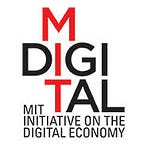Is STEM Losing its Luster?
Science and tech education are still touted as the ticket to career success, but research tells a more nuanced story
By Paula Klein
For several decades, America has touted and invested in Science, Technology, Engineering, and Math (STEM) education to prepare students for lucrative jobs of the future. These modern careers and skill-sets are said to be a key contributor to economic growth and national competitiveness. Nevertheless, STEM workers are still perceived to be in short supply. Are they? What explains the discrepancy between the messaging about STEM and actual results?
David Deming, a Professor of Public Policy at the Harvard Kennedy School, and Kennedy School PhD candidate, Kadeem Noray, studied the life-cycle returns of STEM degrees to answer these questions, and found some surprising results. By analyzing long-term occupational data, the researchers show that rapid technology cycles constantly introduce new job skills and make old ones obsolete. A shortage of STEM workers, therefore, can be explained by technological change, not because STEM isn’t valued as a career choice.
Moreover, the research shows that initially high economic gains decline over time. Wages for young workers with STEM degrees are strong, for instance, but wages weaken by more than 50 percent in the first decade of a working life. The study used detailed job vacancy data from Burning Glass to compute changes in occupational skill requirements from 2007 -2017.
The research shows that STEM jobs changed more quickly over the last decade than non-STEM jobs, leading to flatter age-earnings profiles as skills became obsolete.
Deming described the research at a recent MIT IDE seminar explaining that technological change is the cause of perceived skill shortages, high initial returns for STEM majors, and an eventual exit from STEM careers over time. STEM graduates in applied subjects such as engineering and computer science earn higher wages because they learn job-relevant skills in school compared to “pure” STEM major such as biology, chemistry, physics and mathematics. Long term, however, new technologies — including AI and machine learning — replace the skills and tasks originally learned by older STEM graduates, causing them to experience flatter wage growth and eventually to exit those jobs by choice or by obsolescence.
Faster technological progress creates a greater sense of shortage, but it is the new STEM skills that are scarce, not the workers themselves, according to Deming.
Other recent studies have questioned the nation’s push of STEM fields over other types of jobs. Deming and Noray’s work shows that STEM careers top the list of fastest-changing jobs, while careers in education and health care are among the slowest changing fields.
Today’s rapid technological change can lead to short shelf lives for technical skills and it may be time to reconsider coding boot-camps and other quick-fix solutions. The tradeoffs between technology-specific training and general skill education are an important consideration for policymakers and colleges seeking to invest in workers today, while also building the skills of the next generation, the researchers conclude. Java programmers are quickly eclipsed by Python coders, who will fall to whatever program emerges next.
In a recent blog post, Deming wrote that: “Over the last three decades, jobs that combine both social and math-intensive skills have seen strong wage growth. They have also grown as a share of all U.S. jobs. In contrast, many STEM occupations that require high math skill but very little social skills have fared poorly. There is growing demand for workers who are flexible and adaptable and who are skilled at working in team-based settings.”
For more on the topic, watch this PBS new program and this research paper.
